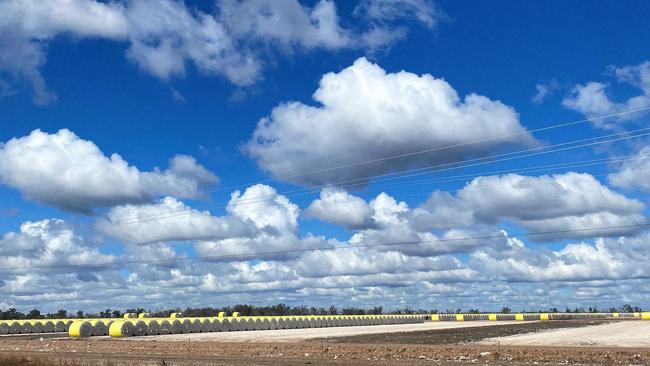Aussie farms still in demand despite FIRB fee increases
The foreign investment review board’s second year of fee increases has done little to deter foreign investors.
A second hike in the foreign investment review board’s fees in as many years has done little to deter international investment in Australian farmland.
In its first quarterly report, published on Wednesday, the FIRB has revealed there were 43 approved foreign investment proposals in agriculture, forestry or fishing in the three months to September 30 this year.
This compares to an average of almost 47 in the previous corresponding quarter, and 49 in the September quarter in 2020-21.
The value of foreign investment in the agriculture space has dipped slightly however, to $1.6 billion, down from a quarterly average of $2.1 billion in 2021-22, but higher than the 2020-21 quarterly average of $1.45 billion.
On July 1, 2021, the federal government raised FIRB application fees 500 per cent on pre-pandemic rates, with the increase described by then treasurer Josh Frydenberg as a way of ensuring foreign investors were the ones bearing the administrative burden of compliance with Australia’s foreign investment framework, rather than Australians.
Those fees were then doubled on July 29 this year by the Albanese government to fund a housing affordability scheme.
The move was forecast to generate $455 million over the forward estimates, which would be funnelled towards the Help to Buy scheme. The initiative allows first home buyers with 2 per cent of a house’s purchase price saved up to secure a loan, with the federal government tipping in between 30 and 40 per cent.

Agribusiness expert David Williams said the dip in investment value could be the loss of the Chinese buyer.
“The Chinese have completely disappeared so that’s taken a level of price tension out of the market. The FIRB attitude has deterred the Chinese from proceeding, and without the Chinese we’re going to see a comeoff in terms of the strength of the market,” Mr Williams said. “They’re added a lot of price tension to land sales and in many cases paid the highest prices.”
Mr Williams said there was still enormous demand for agricultural land out of North America and Canada, most notably super funds and Ivy League universities.
Rural land valuer and agricultural economist Sam Paton said foreign investors were so wealthy it was unlikely they would be put off by higher fees associated with purchases. But the dip in the value of FIRB approved investments could be that they were questioning the economic return.
“I think they’re so wealthy the fees wouldn’t bother them. It’s all about return on investment,” Mr Paton said.
“The number crunches are saying ‘hang on, we’re going to stop now and see what happens’, because I suspect there’s going to be a few who have overextended buying their neighbours out and paying stupid money. … The price of land has gone up beyond what we can get an economic return on.”
There have been numerous farm sales this calendar year where foreign investors have paid significant sums for land, including for NT’s Narwietooma Station aggregation by Canada’s PSP Investments for about $96 million and NSW’s Sunland aggregation by MERS Global Investments for $45 million.
As of July, foreign investors must pay $13,200 for acquisitions of $2 million or less, a fee that increases to a maximum of $1,045,000 for purchases of more than $80 million.
This is up from $6600 for acquisitions of $2 million or less, and a maximum of $522,500 for purchases of more than $80 million.
For purchases greater than $80 million, foreign investors also face a national security review fee of $261,250 up from $130,625 in 2021-22.





